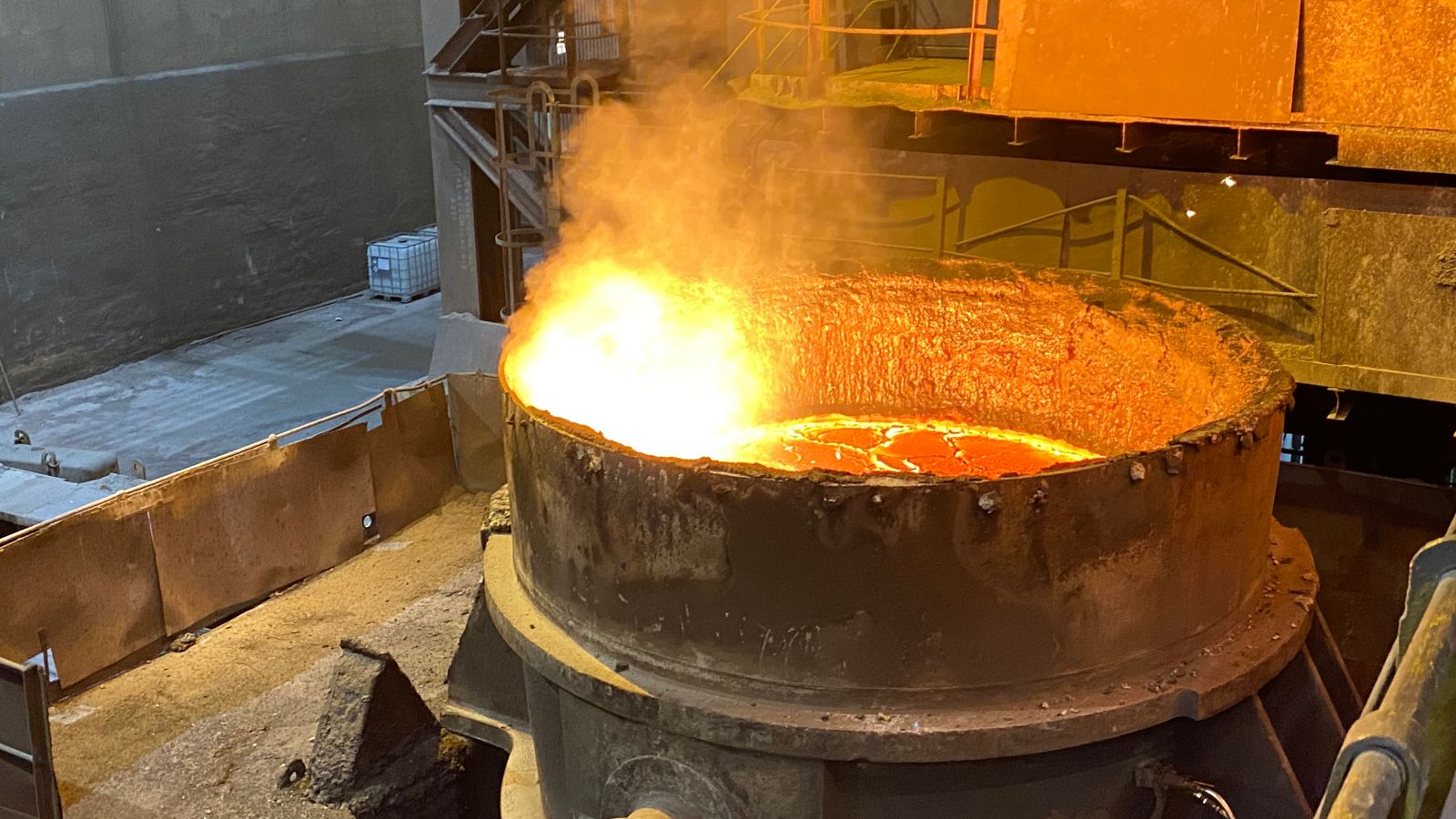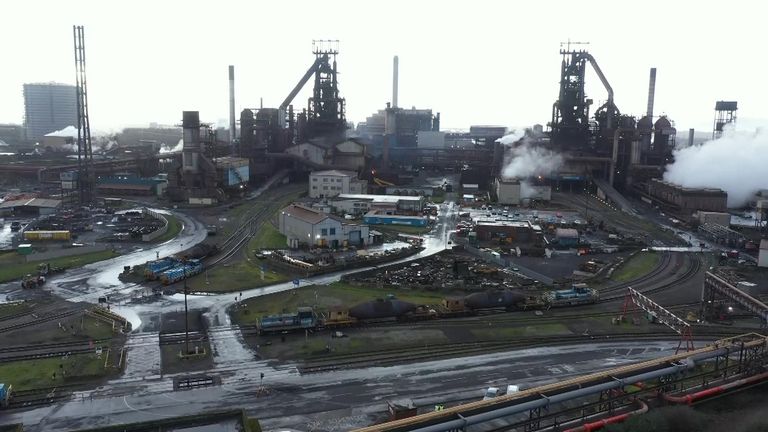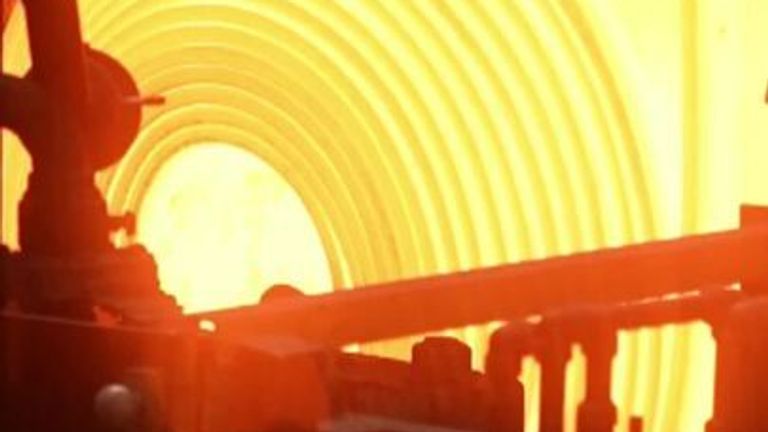Steel rescue package could be a ‘missed opportunity’, Labour MP Stephen Kinnock warns


A government aid package aimed at securing the long-term future of steelmaking in South Wales could be a “missed opportunity”, a senior Labour MP has told Sky News.
Stephen Kinnock, whose Aberavon constituency includes Port Talbot, home of the steelworks owned by Tata, also said the deal could be counterproductive.
While it does include the building of electric arc furnaces (EAFs) – which are greener than traditional blast furnaces – it does not focus enough on transitioning to a decarbonised economy, Mr Kinnock said.
“Nobody’s really talking about hydrogen (to produce steel), carbon capture and storage,” he said.
Dr Jonathan Aylen, a steel industry expert at the University of Manchester, has similar concerns, describing the potential agreement as a “bit of a stop-gap solution”.
Getting rid of blast furnaces, which use coke derived from coal, would be an important step, however.
While they are a “great way to make steel” they are also a “great producer of carbon”, Dr Aylen told Sky News.
“For every tonne of steel you make you get two tonnes of carbon dioxide going into the atmosphere.”
But he, too, mentioned the use of hydrogen and carbon capture and said ministers need to take a “long, careful, hard look at what needs to be done to decarbonise steel and stop becoming, so to speak, being taken for a sucker by every company that wants a handout”.
Advertisement
For the unions, there are concerns about job cuts, because EAFs use less labour-intensive processes to produce steel than blast furnaces.
The government is “choosing to follow a jobs cuts agenda”, the Unite union has claimed.
Community, the steelworkers’ union, said unions had “not agreed any decarbonisation strategy for Port Talbot”.
There are questions, too, about whether it is worth spending taxpayers’ money to support the steel industry.
Russ Mould, investment director at AJ Bell, said it accounts for a “fraction of a percent” of the UK economy.
UK steel has been through “multiple insolvencies” and this latest rescue plan could be seen as the government “throwing good money after bad”, Mr Mould added.
But Mr Kinnock said that failing properly to support the British steel industry could mean becoming reliant on metal from China which is produced in an “incredibly dirty, heavily polluting” manner.
The potential agreement, uncovered by Sky News, could see ministers handing over a £500m aid package, with Whitehall officials and Tata Steel getting close to agreeing a deal that would commit more than £1bn to the future of the firm’s South Wales plant.
Mr Kinnock said he had “real concern” that the “focus seems to be very much on electric arc furnaces”.
He added: “Nobody’s really talking about hydrogen, direct reduced iron, carbon capture and storage, which are all vitally important routes to decarbonising the steel-making processes.
“If we don’t have all those different routes we won’t be able to make all the grades and quantities of steel that we need to retain our customer base.
“And if we don’t do that there will be more job losses than are necessary, and it will be a missed opportunity by the government and by Tata Steel.”

Read more:
Airbus and Tata Steel back push to spark green hydrogen strategy
Why the British steel industry is on the brink of extinction
Mr Kinnock is calling for a “full spectrum approach” as the UK pursues rapid decarbonisation, and said it is “vital” the unions and the workforce are fully consulted about the agreement.
Asked if the steel industry has a future, Mr Kinnock said: “Imagine the cost of doing nothing. There are 4,000 very well paid, high-skilled jobs in the Port Talbot steelworks.
“If we’re going to transition to a decarbonised economy are we going to do that by importing steel from China?
“We’re also living in a dangerous and turbulent world. Do we really think it’s a good idea to be relying on other governments – sometimes hostile to the UK – to supply our steel?”
Please use Chrome browser for a more accessible video player

2:59
What’s the cost of Tata Steel going green?
Sharon Graham, the general secretary of Unite, said: “This government could make us the green steel capital of Europe – instead they are choosing to follow a jobs cuts agenda. Unite will leave no stone unturned in the fight for jobs.”
Community, the steelworkers’ union, said: “We remain in discussions with the company and the unions have not agreed any decarbonisation strategy for Port Talbot.
“We continue to support a solution that will maintain blast furnace production and safeguard the future for all the UK plants.
“We are ready to use all means at our disposal to protect jobs and our vital strategic industry.”